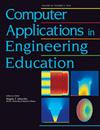Integrating Computational Design Optimization Into Architectural Design Pedagogy—An Experimental Course for Performance-Based Building Design Optimization and Exploration
Abstract
This paper presents an experimental course focusing on computational design optimization for performance-based building design exploration in a newly developed course for second-year architectural students. The course uses a hybrid design system combining a parametric design tool with a cloud-based design evaluation server. The system allows students with no prior parametric modelling skills to conduct a series of performance-based design optimizations and subsequently extract knowledge regarding the interrelation between design performance and building form. The use of this system allows concepts, such as performance-based design optimization and design space exploration, to be integrated into the teaching of this 6-week course for more than 200-year two students. Throughout the course, students were able to conduct systematic design exploration assisted by computational design optimization and synthesize the knowledge obtained from the optimization into their design process. The paper showcases examples from students' coursework along with their reflections after utilizing the system in their design task. The analysis of these outcomes demonstrates how this course can enhance early-year students' understanding of the value and utility of performance-based design optimization in architectural practice. With the demonstrated coursework outcomes and students' reflections, the implication of this course to computational design teaching is discussed. Additionally, two key limitations are identified: the difficulties some students encounter in applying knowledge gained from optimization to the design process and the lack of transparency concerning the mechanisms of evolutionary optimization due to inadequate technical details provided.

 求助内容:
求助内容: 应助结果提醒方式:
应助结果提醒方式:


